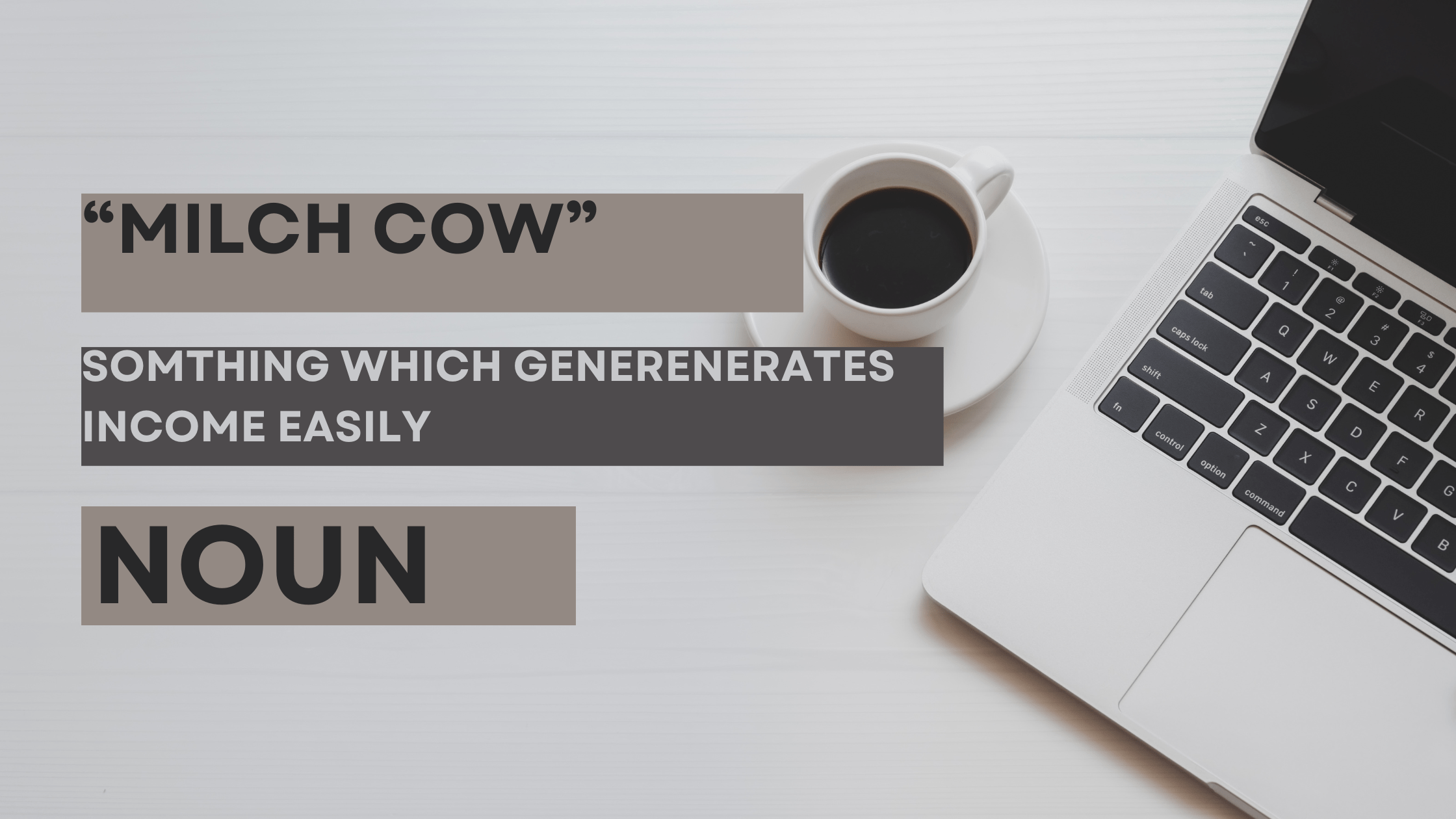Milking the Meaning: Unveiling the “Milchcow” Compound Word:
The word “milchcow” might seem as straightforward as a barn door, but its humble roots hold a surprising depth of meaning and a fascinating journey through linguistic history. Let’s milk the metaphorical udder of this compound word and discover its hidden treasures.
Read this also Unmasking “who else meaning”: A Deep Dive into Meaning and Usage
A Tale of Two Words:
At first glance, “milchcow” appears to be a simple combination of “milk” and “cow,” a noun and another noun. But delve deeper, and you’ll find a fascinating twist. “Milch” isn’t just any old milk; it’s an adjective, specifically meaning “giving milk.” This makes “milchcow” a delightful example of a compound adjective-noun, a construction where the adjective modifies the noun in a way that creates a new, more specific meaning.
Tracing the Tracks of Time:
The story of “milchcow” stretches back centuries. It first appeared in Middle English around 1375, born from the Old English words “milc” (milk) and “cy” (cow). Over time, the “cy” evolved into “cow,” and the “milc” adopted the “h” to become “milch,” likely for reasons of pronunciation and clarity. This linguistic evolution reflects the changing needs of language, adapting to express new ideas and concepts with greater precision.
Beyond the Barnyard:
“Milchcow” isn’t just confined to the farm. Its meaning has extended beyond the literal, taking on metaphorical and figurative uses. A “milchcow” can represent any source of consistent and reliable income or profit, often exploited or overused. Think of a business that milks its customers for every penny, or a celebrity who’s seen as a “milchcow” for the tabloids. This metaphorical use highlights the inherent power imbalance in the relationship between the “milker” and the “milked,” adding a layer of social commentary to the word.
The Power of Compounds:
The “milchcow” compound word is a testament to the power and flexibility of language. It demonstrates how simple words can be combined to create new meanings, adding nuance and precision to our communication. It also showcases the dynamic nature of language, constantly evolving to reflect the changing world around us.
Beyond the Black and White:
While “milchcow” might seem like a straightforward term, its history and usage offer a glimpse into the complexity of language. It’s not just a word for a cow that gives milk; it’s a window into our understanding of power, exploitation, and the ever-changing landscape of communication.
Milking the Fun:
So next time you encounter a “milchcow,” literal or metaphorical, take a moment to appreciate its linguistic journey. Think about the hidden meanings it carries, the way it reflects our world, and the power of language to create new and fascinating words. Who knows, you might even be inspired to create your compound word, adding your unique flavor to the ever-evolving tapestry of language.
Remember:
“Milchcow” is an adjective-noun compound word, where “milch” modifies “cow.”
It has a rich history dating back to Middle English and Old English.
It can be used literally to refer to a cow that gives milk, or metaphorically to represent any source of consistent income or profit.
Its usage highlights the power and flexibility of language, as well as the dynamic nature of communication.
So, there you have it, a deep dive into the simple yet fascinating world of the “milchcow” compound word. Now go forth and milk the meaning of language with newfound appreciation!

